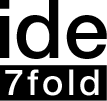1995 performance colombiano engl
ide hintze, a poet for renewal
photos by diego gonzáles
poetry’s rights to vote
by ide hintze
dedicated to "im sommer" (in the
summer) by ingeborg bachman
the poet who writes in letters of light
does not fear the shadows
only through them do they become legible.
the poet who writes in shadows
fears them as well as the light.
he seeks a third.
the austrian poet ide hintze is part of an innovative movement in poetry, and it is he who will turn our faces to the gestural language of the future, where the verses are converted into corporeal and aural forms.
ide hintze, one of the great figures of the poetry festival, with cropped hair and an incisive and penetrating expression, is capable of transporting an audience into unimagined situations reachable through the probing of verses over unusual landscapes. otra!, otra!, cried the audience in the alfonso restrepo moreno auditorium on thursday when the poet ended his recital of his poem of the letters a and o.
as four conceptual dimensions to develop his poetry, hintze uses the written word, sound, the visual representation of the body as exhibit, and what he calls infrastructural poetry. his work “the golden flood” (1987), which took five years to write, represents for the poet "all the visions that i was having".
“30 rufe” (1992) is his cd of sound poems, and “die lyrische guerrilla” (1993), is the book of infrastructural poetry in which hintze tackles the organisation of poets in society. he speaks in particular of the first march they made in vienna in 1982. it was the first in an effort to self-organise in which poets from all over the world began to unite to fight collectively against their difficult economic situations, the infractions of the rights of the authors, and for the exchange of ideas. from that moment, hintze began to note a positive change in the cultural atmosphere of europe, and in the poets. "they realised that society needed them,“ he stated. "utopia doesn’t exist. there is no utopia in philosophy, nor in politics, nor in religion. but it still exists in poetry".
poetic revolution
the poet believes that the discipline of his profession, the form in which his colleagues can organise and create a poem, and the form in which they see the world are important and necessary aspects for restructuring society to give rise to "the next revolution, which will be that of the poets."
although restructuring and creation are primordial themes for hintze, he explained that his work follows certain established traditions from before the second world war. the custom that the poets had, and continue to have, to gather in cafes to discuss ideas and ideologies of the day was interrupted by the nazi regime in the 1940s, which sparked literary movements such as the radical vienna group in the 1950s. these were poets who worked with body language and wanted to destroy the spoken language itself, replacing words with simple sounds. in the 1960s the dada movement was founded, and the philosophy and criticism of language arose as traditions, all of which form roots for hintze’s work.
poetic improvisation
these elements unite to produce the audiovisual presentations of improvised performances that have made hintze popular. his video “30 nanzen” contains examples of his work presented in the streets of vienna, in forests and in any other places where some stealthy ideas occurred to him.
hintze has said that, like his inspirations john lennon the english musician and the greek poet sappho, he always seeks to create something that will be new, different and unknown, in what he calls expanded poetry, a poetry that deals with voyaging beyond the written voice. he gave as example a few cooking classes that are being taught by a poet in the vienna school. "this poet believes that cooking is an archetype of poetry, of the creative process. his first class consists of going and buying the ingredients for the meals with his students."
for the poet there is no simple poem, or literature as a genre without sex. hintze thinks that to be the most complete and effective poet one has to have both a feminine and masculine side when trying to write. "it’s necessary to have a representation of different voices in poetry. if as a poet you are lacking one of these voices, either the feminine or the masculine, the work is less effective".
remaining items of the revolution:
the platform for public opinion has crumbled.
the hierarchy dissolves its forms.
the old hymn sounds its notes individually.
the game of love has disintegrated into positions.
the massif of the poem is a waste dump of empty shells.
the solid political blocs are losing their posture.
mimicry is one grin after the other.
your soul is growing above my head.
the body of the mystical is an amalgam of curious episodes.
even the peak of a mountain lies at its own feet.
so be vigilant! don’t touch the rubble! be the avalanche yourself!
whenever you remove the peak of a mountain,
a new one arises somewhere else.
(mary luz mejia: el colombiano, cultural, medellín, colombia, sunday, june 11, 1995. original language: spanish)
